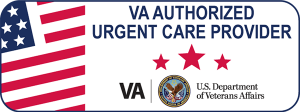
Health Care Advice for Travelers on Cruise Ships
Cruising has become an increasingly popular choice in recent years. After all, it’s an ideal way to relax and see the world. You do not have to worry about lodging, and making reservations for meals. In addition, you get to enjoy fun activities on board, and visit multiple destinations in a matter of days. While cruising has many obvious pleasures, there are still plenty of health hazards that lurk on and off board. If you are planning to take a cruise this summer, the following advice may help to ensure that you make the most of the experience.
Pre-Travel Health Check
Allow plenty of time for a pre-travel consultation. Book an appointment 4 to 6 weeks ahead of your departure date and have the list of countries you’re visiting on hand. You may need specific medications and vaccinations, depending on your travel destinations.
Vaccinations
Check that you are up to date on your routine vaccines, including your flu vaccination. Travel vaccine requirements are likely to vary depending on the destination, and some may require multiple doses. Additionally, you may require a certificate of vaccination against yellow fever which is an immigration requirement for many countries. Ensure that you have this paperwork in hand before heading off on your voyage.
Food and Water
Food and alcohol on cruise ships are generally available in abundance. Changes in diet and environment can cause gastric upsets while you are on vacation. You can help to prevent a gastrointestinal infection (commonly caused by the norovirus) by washing your hands thoroughly before eating and drinking. Also, be mindful to tell the food staff of your allergies and dietary restrictions.
Motion Sickness
Seasickness is the feeling of nausea and dizziness associated with the motion of the boat. Often, this is more common on smaller vessels as opposed to large cruise liners. If you are concerned about getting seasick onboard, talk to your doctor or pharmacist before you travel about the preventative measures you can take, including oral medication and patches.
Do you have questions about your health on your upcoming cruise? We can help with this and more! When you need urgent medical attention and travel medication, visit Sand Canyon Urgent Care. With facilities in Irvine and Stanton, we can attend to your medical needs quickly. We welcome walk-ins and have an expert team of medical professionals ready to help you.




